The topic of the first meeting of the WAC Parents’ club in March was the role of the older generation in parenting and approaches to parenting dictated by modern realities.
The Parents’ club at the WAC Discussion club gathered for the first meeting in March not parents, but grandmothers. The guest of the meeting was the coach, teacher of the Abkhaz State University, Astanda Sadzba, who herself is raising a two-year-old grandson.
The head of the WAC Discussion club, Irina Turava, said that the idea of inviting grandmothers to the club arose during a previous meeting, which discussed the education of leaders in children.
“Moms clearly realize that the older generation plays a huge role in this complex process, so we decided to bring our mothers and mothers-in-law. Children and parents have been, are and always will be there, just as problems of fathers and sons. Accordingly, we have something to work on. Today we gathered for the first time in such a composition,” Turava said at the beginning of the meeting, thanking the grandmothers for taking the time to come, and wishing everyone to “spend time with benefit”.
The invited expert, coach Astanda Sadzba, spoke about the mistakes that should not be repeated when raising children and grandchildren, and, in general, about the “strategy” of education.
According to her, the “strategic importance” in education is primarily the constant presence next to the children.
“Every day interaction with the child is built with regards to the “picture” that you want to see in the future,” said Sadzba, explaining that the good upbringing of children and grandchildren is a “happy old age” of the educator.
The expert said that the role of adults in raising children consists, first of all, in being the guarantors of their physical and psychological safety.
“Providing physical security alone is not enough. In a child deprived of psychological safety, complexes develop in the future,” the coach explained.
In building relationships with children or grandchildren, an adult must fulfill three roles in their lives: firstly, to be a role model, secondly, a friend and, thirdly, a mentor.
“In order for a child to listen to you, become a model for him in everything. You can’t say that smoking is harmful, and at the same time smoke yourself. A child is born as a blank sheet of paper, and everything that we write there will be embedded in him - knowledge, skills and even complexes. All adults who are in contact with the child — parents, teachers, relatives — help him grow, he reads all the information very clearly,” said the coach.
She drew the attention of those present that the essence of communication is “not in the information sent, but in that delivered.”
“We can emotionally yell at a child: “I told you a thousand times!” But if he did not understand, then this was not enough. So, it is necessary to explain again until he understands. It is necessary to raise a child, respecting his personality. You can’t say: you are bad. It should be said: “You are good, but your deed is bad.” Because if an assessment is given to his personality, he will not be able to change, and he can improve the way he acts,” explained Astanda Sadzba.
The participants inquired about the coach’s opinion on how to raise a modern child and at the same time lay Abkhaz traditions in him. To this, the specialist noted that the essence of Apsuara, the code of Abkhaz, is respect for the personality of a person, no matter what age he is - “from a child to an old man”. At the same time, Sadzba spoke in favor of eradicating archaic traditions that are not relevant today, because, in her opinion, there is often a substitution of concepts.
“The traditional action remains, but we have already lost the meaning of actions. For example, why were people fed at the wake? Because they came from far away. Why is this still being done today?” Astanda Sadzba asked a rhetorical question and added: “Apsuara is about respect for everything. To a child, an adult, to someone else's opinion, to other people's actions. If we want to raise children in a multicultural way, we can not keep only Abkhaz way, having closed from the whole world. You need to know what is yours, but respect what is happening around the world.”
Concluding her speech, the coach noted that grandmothers in their relations with their grandchildren should be occupied with the main idea: “What trace will I leave in his soul, how will I remember him?”
The grandmothers who were present at the club were at the same time someone's mothers-in-law, so the meeting did not go without questions about the relationship between the daughter-in-law and the mother-in-law: about different methods for raising children for them, about the advisability of living together, and how to avoid conflicts.
Coach advised “to switch on creative thinking.” When asked who of the parties should “switch it on”, the head of the club, Kama Kvitsiniya, who participated along with everyone in the discussion, answered, who herself is a mother and daughter-in-law: “The one who has more motivation. Whoever is most in mood for maintaining harmony in the family, he shows creativity. One who is smarter must take responsibility.”
Astanda Sazba supported her and added: “It’s good to live with the husband’s parents because the wisdom of three generations is manifested in the upbringing of a grandson.”
During the session of the Parents’ club, a live broadcast on the social network Instagram was organized. Online meeting participants watched the broadcast, wrote comments, asked questions. Among the spectators, as it turned out, was the Chairman of the Supreme Council of the WAC Mussa Ekzekov.
Suddenly, a WAC employee, whom Ekzekov authorized to congratulate all those present on International Women's Day entered the room where the meeting took place with a large armful of flowers.
Selma Zantaria, the grandmother of grandchildren of six and seven years old, told WAC about her impressions of the meeting. A member of the club noted that the Parents’ club “was interesting and informative.”
“I’m not only a grandmother, I’ve been working with children in the Ochamchira Youth Center for many years, I’m working with the Sukhum Youth House. Everything that Astanda Sadzba talked about is very interesting, I will apply what I have heard in my work, not only in the education of my grandchildren,” Zantaria said.
Following the results of another meeting, the head of the Parents’ club noted that each time interested members come to the club, who gain a lot of useful information for themselves.
“After the discussions, many say that they heard seemingly simple solutions, but they did not come to their minds before. This happens when you listen to a lot of opinions, when others share their experiences. It turns out that we combine the experience of different people and therefore believe that meetings at the Parents’ club are fruitful. In the future, we hope that it will be possible to travel outside Sukhum, to hold meetings of women with specialists in the districts,” Kama Kvitsiniya shared the idea.
The Parents’ club is a special project at the Discussion club of the World Abaza Congress. It began its work on November 30. Any parent can become a member of the club. According to the organizers, the main condition for this is “interest and motivation”.
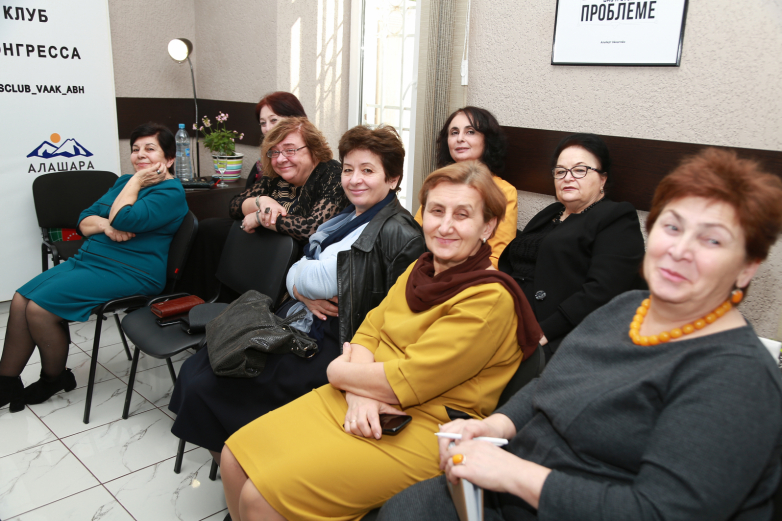
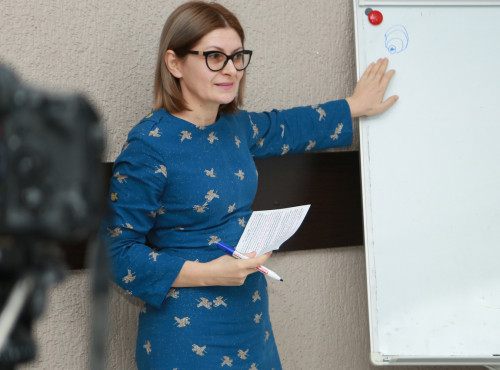
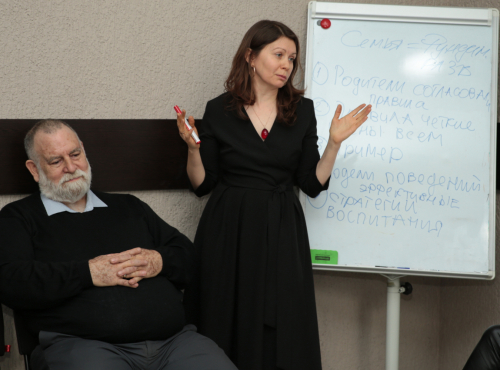
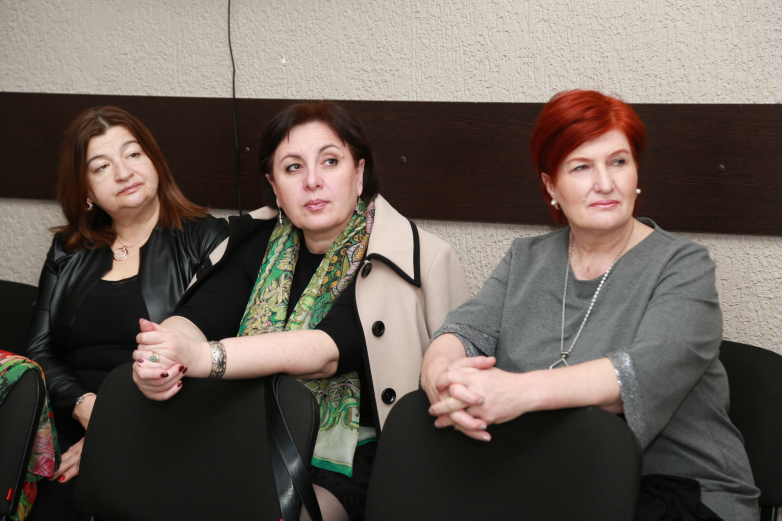
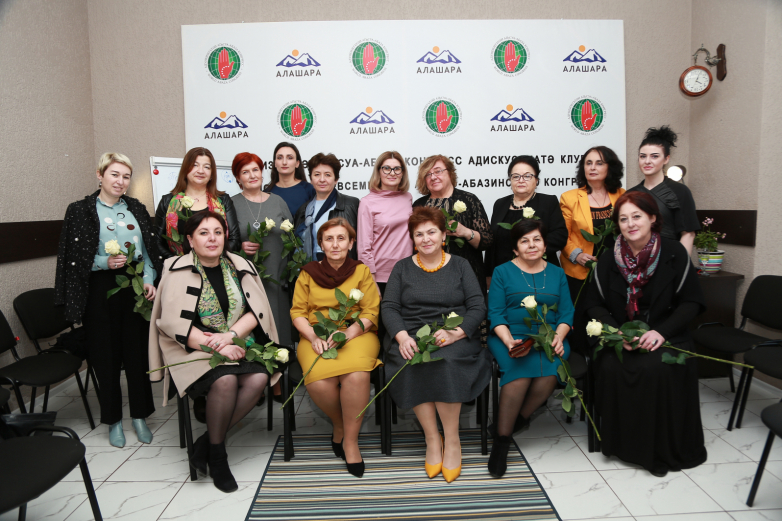
to login or register.